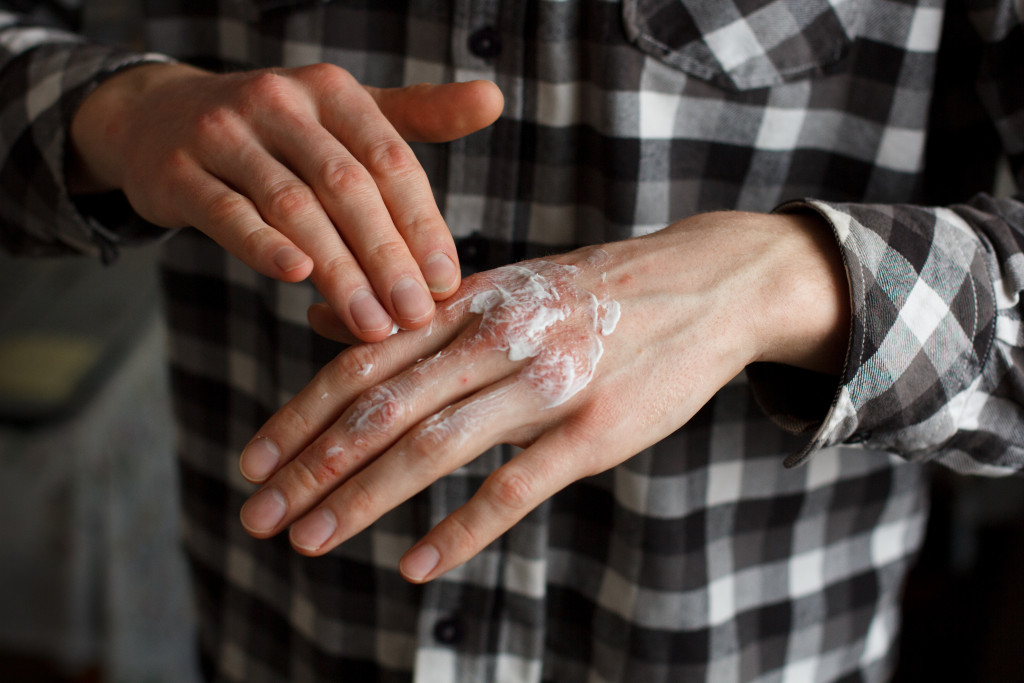Disclaimer: Curate Gifts. This site provides fashion and lifestyle content for informational purposes only.
Dry skin is a common problem that can be caused by a variety of factors, including environmental conditions, age, and certain health conditions. Dry skin can lead to a number of health risks, including skin infections and other complications.
This common skin condition is affecting an estimated 50 to 80 percent of the population. It can occur in any season but is most common in winter when environmental conditions are drier. Dry skin can also be more common in older adults and people with certain health conditions, such as diabetes or thyroid disease.
Causes of dry skin
There are a number of different factors that can cause dry skin, including:
Environmental conditions: Cold, dry weather can remove moisture from the skin, making it more susceptible to dryness.
Age: As we age, our skin produces less oil, which can lead to dryness.
Certain health conditions: Conditions like diabetes or thyroid disease can cause dry skin.
Use of certain medications: Certain medications, such as those used to treat acne, can cause dryness.
Hot showers: Taking hot showers can remove the natural oil from your skin, making it more susceptible to dryness.
Health conditions related to dry skin
One of the health risks associated with dry skin is skin infections. This is because dry skin can crack and provide an entry point for bacteria. Dry skin can also lead to other complications, such as itchiness, redness, and inflammation.
People with dry skin are also more susceptible to developing eczema, a condition that causes the skin to become itchy, red, and inflamed. Eczema is a long-term condition that can be difficult to treat.
Other health risks associated with dry skin include:
- Skin tags- Skin tags are small, benign growths that occur on the skin. They are most commonly found on the neck, armpits, and groin area. Skin tags are not dangerous but can be unsightly and can sometimes itch or bleed.
- Age spots- Age spots are small, dark patches that can occur on the skin as we age. They are caused by a buildup of pigment in the skin and are harmless. Age spots can be treated with laser surgery or other treatments, but they usually do not require treatment.
- Dandruff- Dandruff is a common condition that causes the skin on your scalp to become dry and flaky. It can be caused by a number of factors, including environmental conditions, age, and certain medical conditions.
- Brittle nails- Brittle nails are a common problem that can be caused by a number of factors, including age, diet, and certain health conditions.
- premature wrinkles- Premature wrinkles are wrinkles that occur at an earlier age than is normal. They can be caused by a number of factors, including sun exposure, smoking, and genetic predisposition.
If you have dry skin, there are a number of things you can do to treat it and prevent further complications. These include using moisturizers, avoiding hot showers, and using humidifiers. You should also avoid using harsh soaps and detergents, as these can further dry out your skin. If your dry skin is severe, you may need to see a dermatologist for treatment.

Treatments for dry skin
One of the best ways to treat dry skin is by using a hydrating serum. Hydrating serums are formulated to replenish the natural oils in your skin. Some hydrating serums contain hyaluronic acid or glycerin, which are particularly effective at hydrating the skin. If you have dry skin, consider using a hydrating serum to help improve the condition of your skin.
There are a number of things you can do to treat dry skin, including:
Use moisturizers
Moisturizers help to replenish the natural oils in your skin, making it more resistant to dryness. Look for products that contain hyaluronic acid or glycerin, as these are particularly effective at hydrating the skin.
Avoid hot showers
Hot showers can remove the natural oils from your skin, making it more susceptible to dryness. Try to take cool or warm showers instead.
Use humidifiers
Humidifiers help to add moisture back into the air, which can help to hydrate your skin.
There are many benefits to using a humidifier, especially if you suffer from dry skin. In addition to helping your skin feel more comfortable, humidifiers can also help reduce the risk of health problems associated with dry air. For example, humidifiers can help prevent nosebleeds, static electricity, and itchy skin. They can also help reduce the occurrence of respiratory problems, such as asthma and bronchitis.
Avoid harsh soaps and detergents
Harsh soaps and detergents can strip the natural oils from your skin, making it more susceptible to dryness. Look for products that are labeled “gentle” or “sensitive.”
See a dermatologist
If your dry skin is severe, you may need to see a dermatologist for treatment. Dermatologists can prescribe medications or other treatments that can help to hydrate your skin.
Conclusion
Dry skin can be a nuisance, but there are a number of things you can do to treat it. These include using moisturizers, avoiding hot showers, and using humidifiers. You should also avoid using harsh soaps and detergents, as these can further dry out your skin. If your dry skin is severe, you may need to see a dermatologist for treatment.

